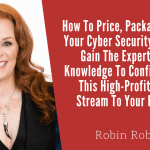A common excuse salespeople give for not closing sales: “We have a long sales cycle.” That’s code for “I can’t get a prospect to commit today.”
That said, there are times when this is a legitimate reason for not being able to close sales faster, particularly when the sale is a big commitment financially or materially or is contingent on a particular event happening, like budgets being finalized or a contract being up for renewal. But that doesn’t mean you have to roll over and accept this. And there is a way to not only speed up the sales process but be able to monetize clients in the short term.

The way you do it is take some smaller, less expensive piece of what you do OUT of the main package of services you sell and sell it as a stand-alone product. Direct marketers often call this a loss leader or self-liquidating offer.
One example is a rent-to-own agreement in real estate. You can lease a property with the option to buy it sometime in the future and have part of your payments applied to the purchase. NetJets or other time-shared private aircraft deals are similar. It takes a giant, long sales cycle to sell a private jet, but if I can sell you a piece of it for $200,000 (vs. $20 million), it makes the decision a lot easier and simpler, which then also gives you a pipeline of buyers who might in time end up simply buying a plane. There’s a company in Florida that is doing something similar. You can buy a membership to time-share a boat so you can buy the rental without the cost or commitment of buying the boat outright. This makes the decision much simpler and less onerous, thereby shortening the time from a prospect entering into your atmosphere to them making a purchase.
In IT services, I had a client years ago tell me he would sell network documentation for $10,000 a year (which was break-even for him) to large enterprise companies with IT departments as a means for getting a foot in the door. Often selling co-managed into these organizations required a long sales cycle, but by putting together a service they wanted but felt they didn’t have the time internally to do, and was “too expensive,” from his competition, they’d say yes and he’d get a foot in the door to a new client he could then work on upgrading to co-managed or other IT-related projects.
Recently, the sales team selling our Big Red Virtual platform started testing an “Event Planners’ Guide To Successful Virtual Events” to overcome the long sales cycle for selling our virtual event platform. Our problem is that most event planners won’t buy and commit to a virtual event platform until about three to four months out from their event, for all sorts of reasons – they want to see if they are going to do a virtual component, they don’t want to think about it until then, they want to wait and see if there will be lockdowns again, etc. To overcome this, we started selling a $500 marketing kit that shows them how to plan and monetize a fully virtual or hybrid (in-person and virtual simultaneous) event. In the kit, they get a limited trial version of our event software, as well as access as a “fly on the wall” to other virtual events so they can experience the platform as an attendee, a session I did on how to monetize virtual events, WHY smart planners use virtual events, etc. Then, if they end up using our platform, we apply the $500 toward the setup fees, so essentially the kit becomes free.
One of the challenges YOU face in closing a managed services deal is your inability to overcome the “We’re in a contract until _______” objection. What do you do with that? Well, you sell them a smaller service that won’t compete with their IT company that they will buy. Bruce McCully of Galactic Advisors has successfully sold his “look over the shoulder” services to CEOs who want someone on THEIR side of the desk reviewing and making sure their IT company or team is actually doing what they are being paid to do. This is a great example. Another would be selling just compliance as a service; most MSPs don’t offer this, and many companies need it. By offering that, you create a smaller item someone can purchase that doesn’t interfere with their current contract.
A question to spend some time on: What could we sell that would shorten our sales cycle, make it easier for someone to say yes and NOT compete with what they’re already getting from their current IT company or team?



